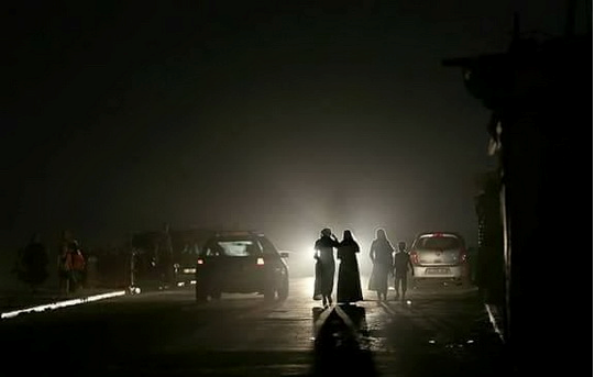United Nations humanitarian organizations in the Occupied Palestinian Territories appealed on Monday, July 3, for funding to address the deteriorating situation in the besieged Gaza Strip. According to a statement published by the UN Office for the Coordination of Humanitarian Affairs (OCHA), the agencies requested some $25 million in funding during a meeting with diplomats in Jerusalem.
According to Al Ittihad, the daily newspaper of the Communist Party of Israel, the additional funding would seek to “mitigate the effects of deep power cuts and a lack of fuel” which have severely affected Gaza’s infrastructure — such as water treatment plants and sewage systems — and its health sector. The funding would also help assist some 100,000 food-insecure families, the OCHA statement added.
Gaza, which marked its tenth year under Israeli-enforced blockade last month, has struggled for years with power shortages due to limited fuel access and degraded infrastructure.
According to the Israeli human rights NGO Gisha, Gaza’s sole power plant partially resumed operations in late June, adding that power is now available for four to six hours a day, compared to three or so hours a day at the height of the shortages. Gisha warned on Wednesday, June 28, that Gaza was left “constantly teetering on the edge of the next electricity crisis, and is severely limited [in its ability to bring about an] improvement of infrastructure needed for economic growth in the Strip,” and called for a “comprehensive, sustainable, and long-term solution” to Gaza’s severe infrastructural deficits.
“The situation in Gaza has become increasingly precarious over recent months. No one is untouched by the energy crisis,” UN Humanitarian Coordinator for the Occupied Palestinian Territories, Robert Piper, said during the meeting calling for funds.
“The coping capacities of Gaza’s families to deal with these types of shocks are seriously depleted as the cumulative impact of 10 years of isolation, division and insecurity take their toll.”
East of Bethlehem, in the occupied West Bank, Israeli forces dismantled and destroyed some 60 solar panels in the isolated village of Jubbet al-Dhib on Wednesday morning, June 28. Head of the village council Rateb Abu Mahamid told the Palestinian news agency Ma’an that Israeli military forces and members of its Civil Administration raided the village early Wednesday to seize the solar panels. Abu Mahamid highlighted that the panels were donated and installed last year to provide electricity to the remote village, which previously had “none of the basic necessities of life needed to survive.”
The village, located in Area C — which includes more than 60 percent of the occupied West Bank under full Israeli military control — is surrounded by illegal Jewish settlements and Israel purposely and maliciously bars Palestinians from building and being connected to basic infrastructure, Abu Mahamid told Ma’an Palestinian news agency.
Asked to comment on the incident, a spokesperson for the Civil Administration, responsible for enforcing Israeli policies in the occupied territory, issued a statement indicating that “illegal solar and electric panels were detected” that had been installed without having previously received the necessary permits. The spokesperson said that stop-work order had been delivered for an “illegal electricity room” and the supports for the solar panels. “We emphasize that the village has other electricity sources,” the written response concluded.
Some 150 Palestinians reside in Jubbet al-Dhib, which is adjacent to the illegal settlement Noqedim — home to Israeli far-right Defense Minister Avigdor Lieberman.



